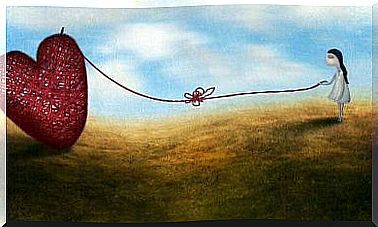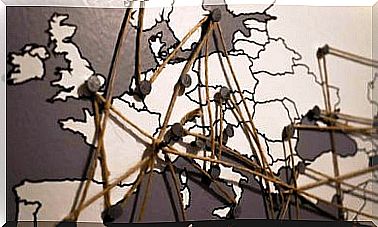Sometimes We Need Someone To Tell Us What We Mean To Him / Her

Sometimes we need to hear an “I love you”, a “you are important to me” or a “thank you for being who you are”. Knowing what we mean to someone is not an act of weakness. We are not trying to feel “validated”, we only need to hear, out loud, what the heart is feeling, and to be recognized and caressed through words, a tone, a sincere voice.
Remember: love is neither intangible nor untranslatable, it is neither smoke nor a perfume, because the verb “to love” comes with our five senses and this is how we let us feel nourished and comforted. We don’t have to take feelings for granted when we bond, a “ you already know how I feel” is n’t enough and doesn’t fuel a relationship, and an “if I’m with you it’s for a reason ” can sometimes lead to more doubts than certainties when we truly love someone.
“One word well chosen can save a hundred more as well as a hundred thoughts.”
-Henri Poincaré-
Almost no one needs to constantly listen to what he represents to others, but to have with us people who do not speak the language of emotions, who escape and who do not perceive the need for it. other to be recognized or appreciated through words can be exhausting. These people can even create and maintain unfathomable doubts, uncertainties and voids, which is much worse.
Quite often, the person who suffers from a lack of emotional caresses expressed in words is forced to translate gestures. To read tenderness through looks, preference through actions, sincerity through these daily behaviors of an alexithymic loved one who neither perceives nor expresses emotions. Such a thing can obviously tire out …

The need to hear and feel that we are important to someone
Feeling love, tenderness and recognition in every atom of our senses, in every vibration of our heartbeat and in every connection of our brain cells gives us balance, well-being, fullness. Human beings are genetically programmed to connect with their fellow human beings because it is in this way that we guarantee our survival and that we manage to move forward, to evolve and to grow as a species.
“A lot of times the words we should have used don’t come to our minds until it’s already too late.”
-Andre Gide-
Therefore, no one should consider themselves to be weak or dependent if they need their partner or loved ones to say a kind word to them, if they want a gesture of tenderness. be translated into a friendly phrase, into an expression that combines empathy and affection. For our brain, this is a very significant act. This is why needing a “thank you”, a “you are amazing” or “I am happy to have you by my side” is something that is not only natural but also logical and necessary.
On the other hand, there is an essential element that we cannot overlook. Yes, adults need to hear what they mean to others. But children need these kinds of gestures even more : it is more important to them than food, than the strong arms that hold them while they are learning to walk, than the clothes they put on or those toys. so dear that they ask us every moment.
Children need to hear positive words, emotional caresses, that voice that validates them, that offers them security, that injects them with trust and true love, the one that gives wings and makes them grow. roots.
The importance of the emotional bond and the quality of it will determine many future behaviors: thus, any child who will be raised in an environment of emotional coldness, insecurity or parental neglect will be much more likely to develop behavioral problems. and marked difficulties in using adequate emotional language.

Speak to me without fear, speak to me with your heart
Emotional illiterates abound, and we are not only referring to those who suffer from this affective-cognitive communication disorder called alexithymia. It’s something much more complex, deeper, that has to do with the way we were educated. We can see this in our day-to-day environments, at school, at work, etc., where “emotional kidnappers” rather than “emotional providers” grow in abundance.
“Language is the habit of thoughts.”
-Samuel Johnson-
We see children harassing others at school or on social media, we see principals unable to create more empathetic, respectful and creative work climates. We see it in the way we communicate, in this way of believing that using emoticons and smiley faces allows us to build meaningful and valid language.

But it is far from being the case. As we are told in the book Corazones Inteligentes (“Intelligent Hearts”, in French) by Natalia Ramos and Pablo Fernandez, our world suffers from the lack of practical application of emotional intelligence. Because emotions are not lived in an abstract world, they are not diffused, life is not a film by David Lynch in which the narrative language, although it is fascinating and symbolic, sometimes lacks meaning. Life needs a firm meaning and the love of certainties.
Therefore, do we use language effectively, allow ourselves to transform it into a creative instrument that allows us to be courageous, that allows our hearts to take care of others, that allows us to connect with the people we do. love using positive words and phrases that convey real affection.









